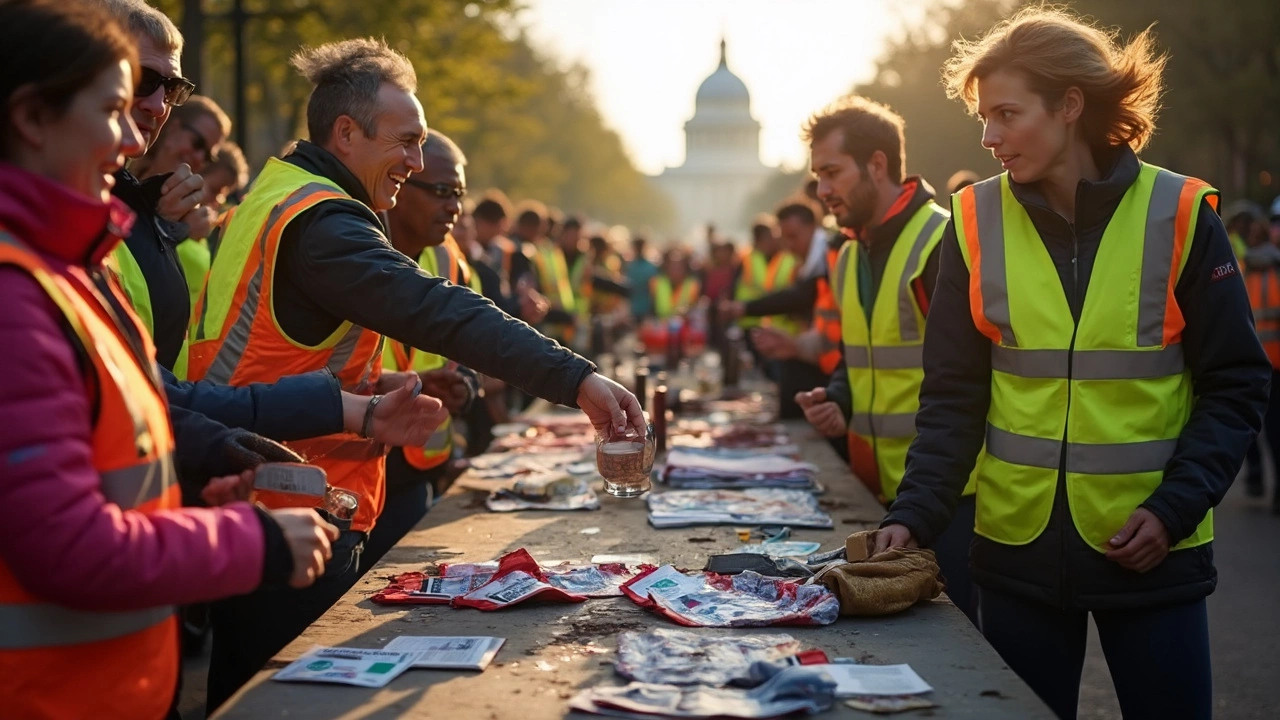Charity Runs: How Community Races Make a Difference
Ever wondered why so many people line up at the start line of a 5K, a half‑marathon, or a fun‑run? It’s not just about the miles – it’s about helping a cause, meeting new friends, and feeling good about yourself. Charity runs turn a simple jog into a powerful fundraiser and a chance to show up for a local need.
Why Join a Charity Run?
First off, the money raised goes straight to charities that need it. Whether it’s a food bank, a hospital wing, or a youth program, every registration fee, sponsor pledge, and donation adds up. Secondly, the buzz around the event pulls the community together. Neighbors who might never chat at church or the grocery store suddenly share a finish‑line high‑five. Finally, you get a health boost. Training for a race gets you moving, and the race day itself feels like a celebration of effort.
Tips to Make Your Run Successful
Pick a cause you care about. When you feel a personal connection, fundraising becomes easier. Share your story on social media – people love to know why you’re running.
Set a realistic goal. If you’re new to running, aim for a 5K. For seasoned runners, a half‑marathon can be a bigger fundraising platform.
Get sponsors early. Approach family, friends, or local businesses to pledge a set amount per mile or per kilometer. A simple email with a clear ask works better than a vague message.
Use the church’s network. Holy Family Catholic Church Patchway often promotes local events. Ask the parish bulletin or website to share your run details – the congregation loves a good cause.
Train with a buddy. Pair up with a fellow parishioner or a friend. You’ll keep each other motivated and share training tips.
Plan your race day gear. Comfortable shoes, layered clothing, and water are non‑negotiable. Don’t forget a reusable bib holder – it looks professional and protects the paper.
Celebrate after you finish. A post‑run gathering, maybe at the church hall, turns the achievement into a community celebration. It’s also a perfect time to thank donors and share how much was raised.
Charity runs don’t have to be a massive production to make an impact. Even a small local 2K can raise enough for a new set of books for a youth group or support a food parcel distribution. The key is consistency – many charities host annual runs, building momentum year after year.
If you’re thinking about organizing one, start with a simple plan: pick a date, choose a safe route, get permission from the local council, and set up an online donation page. Involve the church’s volunteers; they’re great at handling sign‑ups, handing out flyers, and cheering on participants.
Bottom line: a charity run is a win‑win. You get a chance to stay fit, meet people, and help a cause that matters to you and your community. So lace up those shoes, spread the word, and make the next race count for more than just a personal best.

What Race Pays the Most? Real Numbers Behind Volunteer Runs
Thinking about volunteering at a race and wondering if you can actually make some money—or at least score cool perks? This article breaks down which races offer the best rewards for volunteers, from big-name marathons in major cities to quirky local charity runs. Discover what you can expect in terms of financial compensation and unique freebies, plus smart tips on landing the best volunteer gigs. If you've ever wondered where your time and energy can go the furthest, here's what you need to know. No nonsense, just facts.
Read More




